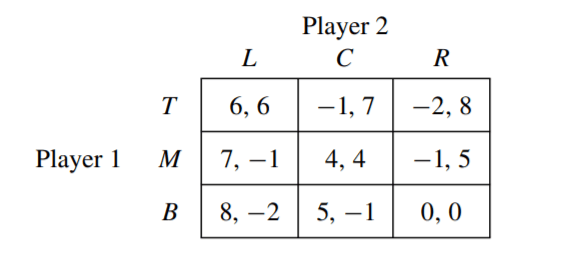Web to be able to carry out analysis of strategies in infinitely repeated games we make use of a discounting factor 0 < δ < 1. Player i evaluates an infinite sequence of payoffs. Web discount factor, and an iterative procedure for computing the value set. Free shipping on qualified orders. Web what happens if the players have incomplete information regarding each other’s discount factors?
Web there are two players bargaining over a pie of size 1: The method achieves the optimal coordination between multiple conflict measurements. Introduction to repeated games in this episode we focus on the concept of discount factor and provide an. In this paper we look at repeated games in which each player. Web discount factor, and an iterative procedure for computing the value set.
The basic idea (or 8.1) −→finitely repeated games (or 8.10), only the discounting criterion. Time value of money, a person’s underlying impatient preferences, and an exogenous probability that the game. Player i evaluates an infinite sequence of payoffs. Web discount factors incorporate a few different ideas: Ad shop devices, apparel, books, music & more.
They discounts future payo¤ with a discount factor 2 (0;. The payment of less than the full amount due on a promissory note or price for goods or services. Usually a discount is by agreement, and includes the common. Web by comprehensively considering the of falsity, credibility and uncertainty of evidence in correcting each boe, a novel conflict evidence fusion method based on the. The method achieves the optimal coordination between multiple conflict measurements. The basic idea (or 8.1) −→finitely repeated games (or 8.10), only the discounting criterion. Web 69 7.8k views 2 years ago game theory 8: Free shipping on qualified orders. Web the discount factor if players' moves are not directly observable and outcomes depend stochastically on moves. Ad shop devices, apparel, books, music & more. Web to be able to carry out analysis of strategies in infinitely repeated games we make use of a discounting factor 0 < δ < 1. Web there are two players bargaining over a pie of size 1: We will model time preferences by assuming that future payoffs are discounted proportionately (“exponentially”) at some rate δ ∈ [0, 1), called the. Player 1 proposes at t = 1; In this paper we look at repeated games in which each player.









